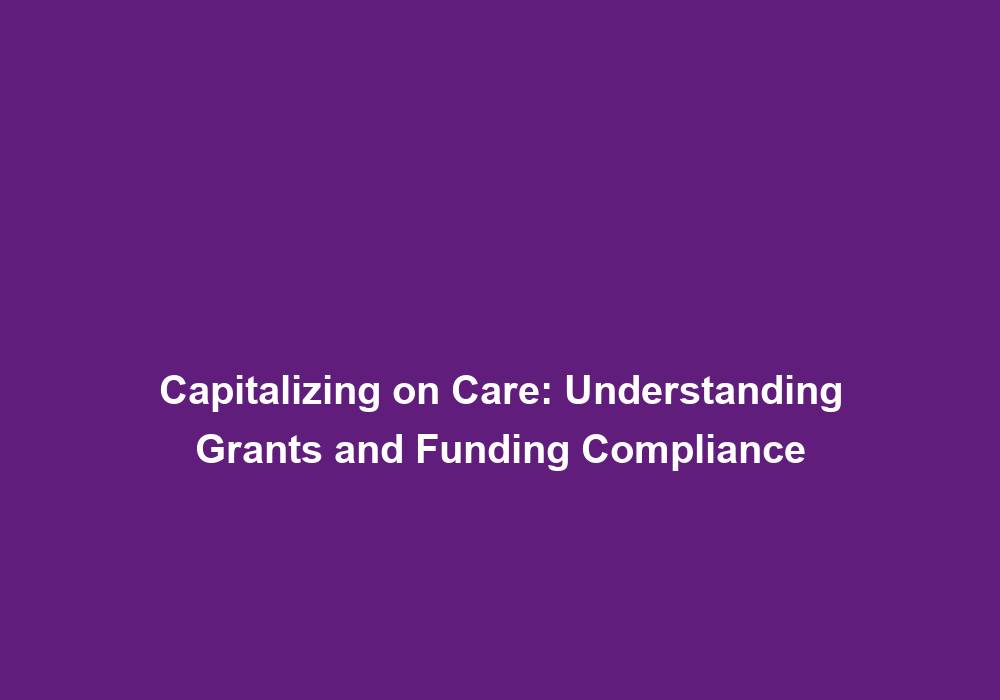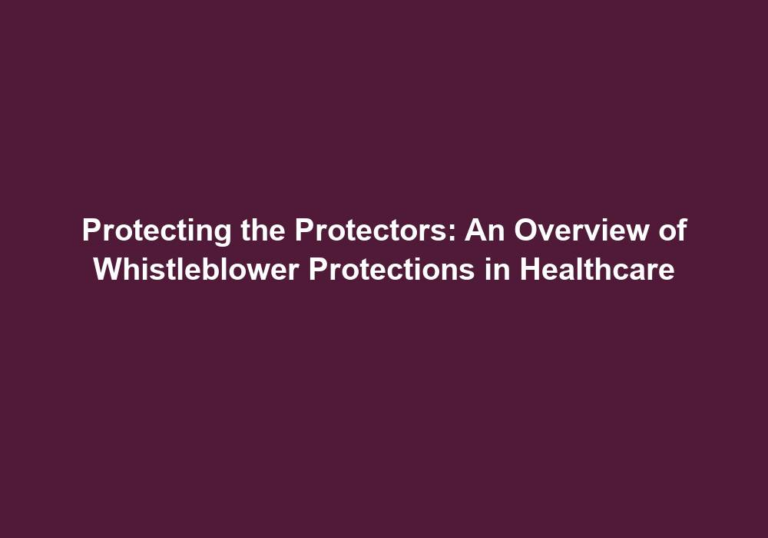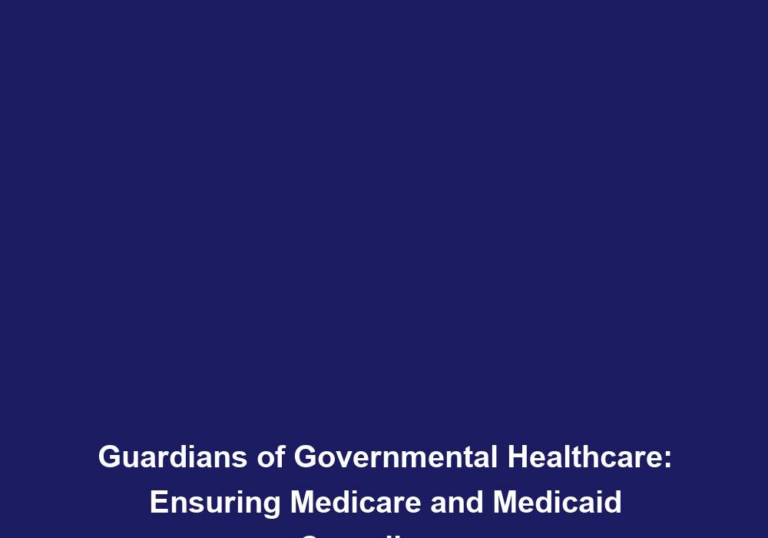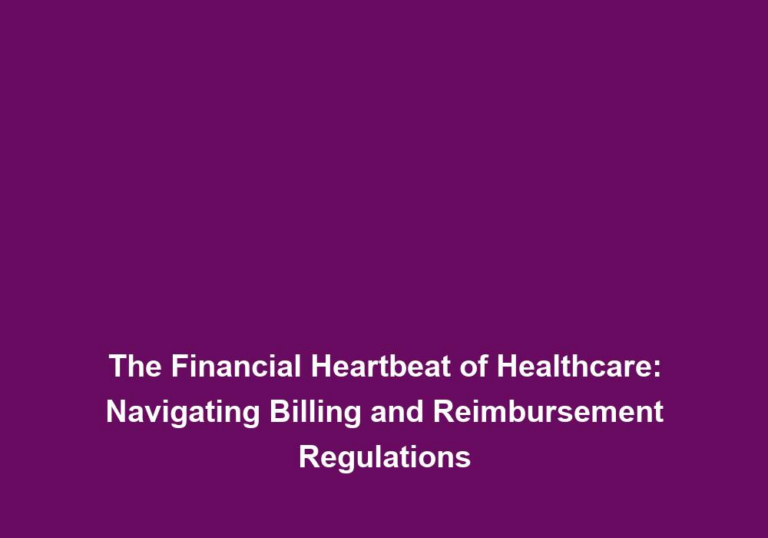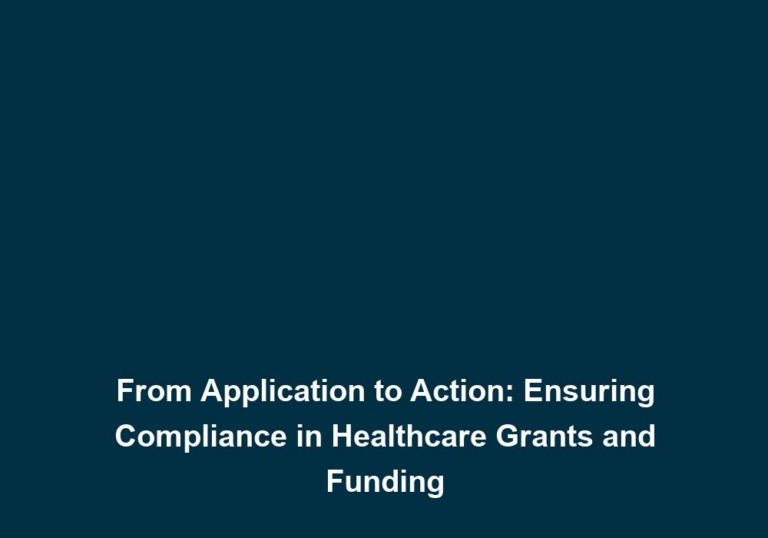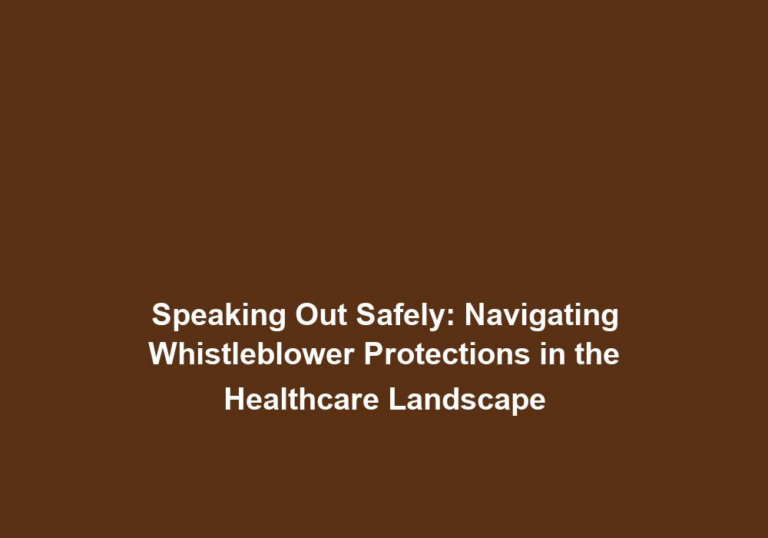Capitalizing on Care: Understanding Grants and Funding Compliance
In today’s competitive landscape, healthcare organizations are constantly looking for ways to secure additional funding to support their operations and provide better care to patients. One of the most effective ways to achieve this is through grants and funding opportunities. However, it is important for healthcare providers to have a thorough understanding of the compliance requirements associated with these grants to ensure they are utilized effectively and in accordance with the guidelines set by the funding organization.
Importance of Grants and Funding Compliance
Grants and funding play a vital role in the sustainability and growth of healthcare organizations. They provide financial support for various initiatives such as research projects, facility infrastructure development, community outreach programs, and training opportunities for medical professionals. However, receiving these funds comes with the responsibility of complying with specific requirements and regulations to maintain the trust and confidence of the funding organization.
Ensuring compliance with grants and funding requirements is essential for several reasons:
-
Maintaining Funding Relationships: Compliance with grants and funding regulations helps healthcare organizations maintain strong relationships with funding organizations. By adhering to the guidelines set by the funding organization, healthcare providers demonstrate their commitment to responsible and accountable use of funds, which increases the likelihood of receiving future funding.
-
Mitigating Legal and Financial Risks: Non-compliance with grants and funding requirements can lead to legal and financial consequences. Healthcare providers may face penalties, reputational damage, and loss of funding if they fail to follow the regulations. By prioritizing compliance, organizations can mitigate these risks and protect their financial and legal standing.
-
Ensuring Effective Utilization of Funds: Compliance requirements often aim to ensure that grant funds are used for their intended purpose. By following these requirements, healthcare organizations can use the funds effectively, achieving the desired outcomes and maximizing the impact of their initiatives.
Key Compliance Considerations
To effectively capitalize on grants and funding opportunities, healthcare organizations must be aware of the following key compliance considerations:
1. Eligibility Criteria
Before applying for any grant or funding opportunity, it is crucial to thoroughly review the eligibility criteria outlined by the funding organization. Eligibility may be restricted to specific geographical areas, population groups, or healthcare specialties. Understanding and meeting these criteria will increase the chances of success in securing funding.
Healthcare organizations should carefully assess their eligibility for each grant opportunity by considering factors such as location, target population, and alignment with the organization’s mission and goals. It is essential to align the proposed project or initiative with the specific objectives and priorities outlined by the funding organization.
2. Proposal Development
Developing a strong, compelling, and well-structured proposal is essential to stand out among other applicants. The proposal should clearly outline the objectives, methodologies, expected outcomes, and the overall impact of the project. It is important to ensure that the proposal aligns with the priorities and goals of the funding organization.
To enhance the quality of the proposal, healthcare organizations should consider the following:
- Conduct thorough research to gather supporting data and evidence that strengthens the proposal’s credibility.
- Clearly articulate the problem or need that the project aims to address, demonstrating a deep understanding of the issue.
- Describe the proposed approach, including the specific activities, timelines, and deliverables.
- Highlight the expected outcomes and the potential impact on the target population or the healthcare organization.
- Provide a realistic budget that clearly details how the funds will be allocated and managed.
By investing time and effort into proposal development, healthcare organizations increase their chances of securing funding and successfully implementing their projects.
3. Budgeting and Financial Reporting
Grants and funding organizations often require detailed budget plans outlining the allocation of funds for specific activities and resources. Healthcare organizations must ensure that their budgets are realistic, transparent, and in compliance with the funding organization’s guidelines. Additionally, accurate and timely financial reporting is crucial to maintain transparency and accountability throughout the project duration.
To effectively manage budgets and financial reporting, healthcare organizations should consider the following:
- Develop a comprehensive budget plan that includes all relevant expenses, such as personnel costs, equipment, supplies, and overhead expenses.
- Clearly define the budget categories and ensure that funds are allocated appropriately to each category.
- Implement a system for tracking and monitoring expenses to ensure they align with the approved budget.
- Establish protocols for financial reporting, including regular updates on expenditures, income, and any deviations from the budget.
- Conduct periodic audits to verify the accuracy and compliance of financial records.
By maintaining strong financial management practices, healthcare organizations can demonstrate their ability to effectively and responsibly utilize grant funds.
4. Regulatory Compliance
Healthcare providers must adhere to all relevant laws and regulations when utilizing grant funds. This includes compliance with federal, state, and local regulations such as the Health Insurance Portability and Accountability Act (HIPAA), the False Claims Act, and the Stark Law. Failure to comply with these regulations can result in significant penalties and legal consequences.
To ensure regulatory compliance, healthcare organizations should:
- Stay updated on changes in relevant laws and regulations, seeking legal counsel if necessary.
- Implement policies and procedures that align with regulatory requirements, such as privacy and security measures for protected health information.
- Train staff members on compliance obligations and the consequences of non-compliance.
- Regularly monitor and assess compliance practices to identify and address any potential gaps or violations.
- Maintain accurate documentation related to regulatory compliance efforts, including training records and policies.
By prioritizing regulatory compliance, healthcare organizations can protect themselves from legal risks and maintain the trust of funding organizations.
5. Reporting and Evaluation
Most funding organizations require regular progress reports and evaluations to assess the effectiveness and impact of the funded project. Healthcare organizations should establish robust reporting mechanisms to ensure accurate and timely submission of progress reports. This not only demonstrates accountability but also provides valuable insights into the success of the project.
To streamline reporting and evaluation processes, healthcare organizations should consider the following:
- Develop clear guidelines and templates for progress reports, ensuring they align with the requirements set by the funding organization.
- Establish a schedule for reporting, outlining deadlines for submission and review.
- Collect and analyze relevant data to measure the project’s progress and impact.
- Engage stakeholders, such as project staff and beneficiaries, in the evaluation process to gather diverse perspectives.
- Use the evaluation findings to inform future project planning and improve the organization’s overall performance.
By prioritizing accurate reporting and meaningful evaluation, healthcare organizations can demonstrate the value and impact of their funded projects, increasing the likelihood of future funding opportunities.
Best Practices for Grants and Funding Compliance
To optimize the utilization of grants and funding, healthcare organizations should consider the following best practices:
-
Develop a Compliance Strategy: Establish a dedicated team responsible for managing grants and funding compliance. This team should be well-versed in the rules and regulations governing grants and funding and should ensure all activities and initiatives align with compliance requirements.
-
Stay Informed: Keep abreast of changes and updates in regulations related to grants and funding. Regularly review guidelines and requirements provided by funding organizations to ensure ongoing compliance.
-
Maintain Documentation: Maintain accurate and organized documentation of grant applications, budgets, financial reports, progress reports, and any other relevant information. This documentation will serve as evidence of compliance during audits or reviews.
-
Training and Education: Conduct regular training sessions for staff members involved in grants and funding management. This will ensure that they understand compliance requirements and can apply them effectively throughout the grant lifecycle.
-
Engage Legal Counsel: Seek legal advice from healthcare attorneys experienced in grants and funding compliance. They can provide guidance on complex legal matters and ensure that the organization remains compliant with regulatory requirements.
-
Establish Internal Controls: Implement internal control mechanisms to prevent and detect any non-compliant activities. This may include regular audits, segregation of duties, and ongoing monitoring of grant-related activities.
By following these best practices, healthcare organizations can navigate the complexities of grants and funding compliance, ensuring the effective utilization of funds while maintaining the trust of funding organizations.
In conclusion, grants and funding opportunities provide healthcare organizations with the financial support needed to enhance patient care and achieve their organizational goals. However, understanding and adhering to compliance requirements is crucial for the successful utilization of these funds. By having a solid understanding of eligibility criteria, developing strong proposals, maintaining financial transparency, complying with regulations, and implementing best practices, healthcare providers can capitalize on grants and funding opportunities while maintaining their commitment to quality care.

